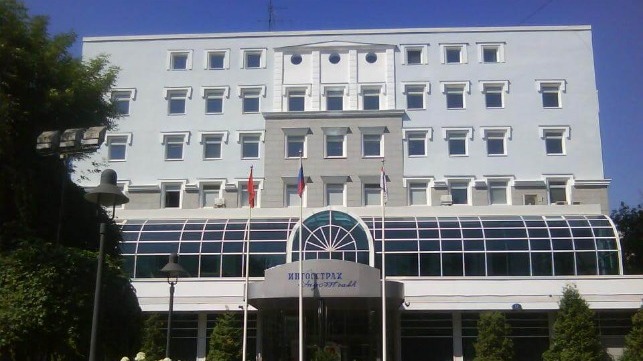Europe Considers Sanctioning "Dark Fleet" Insurer

The European Commission is considering a request to sanction one of the top insurers of the Russian "dark fleet," the shadowy tankers and opaque shell companies that move "sensitive" Russian crude oil cargoes to market.
Moscow-based Ingosttrakh has its roots in post-WWII Soviet Russia, when it was formed to support Russian projects abroad. Today it provides a full spectrum of insurance and reinsurance, and its public-facing lines of business are primarily in the consumer and commercial sectors.
Since the implementation of the G7 price cap in 2022, Russian-serving shipping interests have built up their own fleet of aging tankers, primarily by buying secondhand tonnage from Western owners. Russian oil export sales routinely breach the $65 per barrel limit of the G7 cap, ruling out participation by Western entities. Without lawful access to the European marine insurance market, the new "dark fleet" operators have turned to questionable second-tier insurance options outside of the International Group.
In March, investigative NGO DanWatch and the Financial Times reported that one of the largest alternative insurers - Ingosstrakh - may deny casualty claims if an insured oil cargo breaches the G7 price cap. Since second-tier insurance is typically purchased for the purpose of evading the price cap, and all benchmark Russian oil prices exceed $65 a barrel, the finding suggests that coastal states in the EU and beyond could face an uninsured risk from an Ingosstrakh-covered tanker in the event of a spill. The hazard is amplified by the age of the fleet, since many "dark fleet" tankers are approaching or are beyond the typical retirement point for a crude-carrying vessel.

that matters most
Get the latest maritime news delivered to your inbox daily.
While the EU's coastal members may have an interest in banning this arrangement, Bloomberg's sources in the EU said that there are complex concerns with sanctioning Ingosstrakh. The company also insures a variety of other commodities, and cutting off its access to Western markets altogether could affect legitimate trade. The effects and costs of this impact are still being assessed, and the latest EU sanctions package does not include the Russian insurer.
Internal political concerns may also prevent the EU from moving ahead with the plan. Sources told Bloomberg that they expect resistance from the Russian-aligned government of Hungary, which has blocked about 40 percent of all EU resolutions related to the Ukraine conflict and prevented the transfer of billions of dollars in EU military aid to Kyiv.
